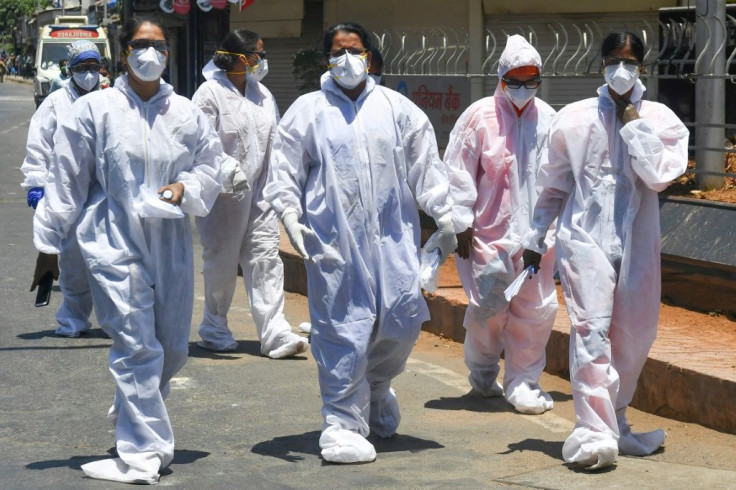COVID-19 Prevention: Scientists Discover Durable, Washable Textile Coating That Repels Viruses
Personal protective equipment (PPE) including masks and gowns are essential for protecting the frontline healthcare workers treating COVID-19 patients. The textiles and materials used to make PPEs are prone to carry pathogens inadvertently and end up spreading the disease the wearer sought to contain. But the researchers at the University Of Pittsburgh Swanson School Of Engineering might have a solution.
The researchers have created a textile coating that can not only repel liquids like blood or saliva but can also prevent viruses from adhering to the surface. They have published their work in the Journal ACS Applied Materials and Interfaces.
"Recently there's been a focus on blood-repellent surfaces, and we were interested in achieving this with mechanical durability. We want to push the boundary on what is possible with these types of surfaces, and especially given the current pandemic, we knew it'd be important to test against viruses," Anthony Galante, a Ph.D. student in industrial engineering at Pitt and lead author of the paper told Phys.Org.
Here’s everything we know about the new virus-repelling textile:
- It is a reusable material with high durability
- The unique coating has the ability to withstand ultrasonic washing, scrubbing, and scraping
- Washing or rubbing won’t eliminate its repellent abilities
- Even after several ultrasonic washes, applying thousands of rotations with a scrubbing pad and scraping it with a sharp razor blade, the coating remained just as effective
- The researchers have tested the coating against a strain of adenovirus and found to be effective
- The coating might have broad applications in healthcare including hospital gowns and waiting room chairs which could benefit from its ability to repel viruses.
"Adenovirus can be inadvertently picked up in hospital waiting rooms and from contaminated surfaces in general. It is rapidly spread in schools and homes and has an enormous impact on the quality of life—keeping kids out of school and parents out of work. This coating on waiting room furniture, for example, could be a major step towards reducing this problem," Phys.Org quoted the director of basic research Robert Shanks, in the Department of Ophthalmology at Pitt.
The research team will soon be testing the effectiveness against beta coronaviruses similar to the one that causes COVID-19. If this fabric would repel beta coronaviruses particularly the SARS-CoV-2, this could have a huge impact on healthcare professionals and the general public.

© Copyright IBTimes 2024. All rights reserved.





















